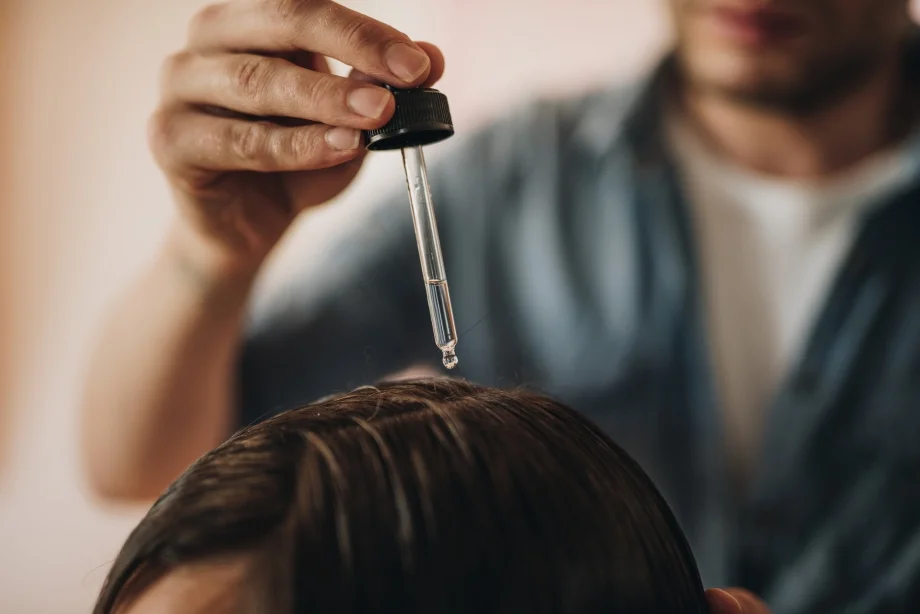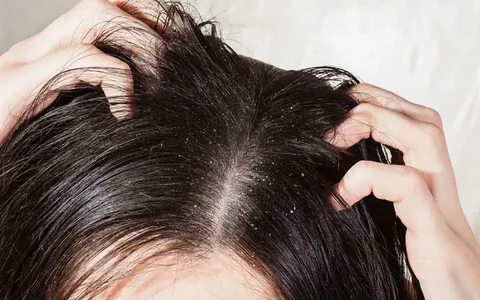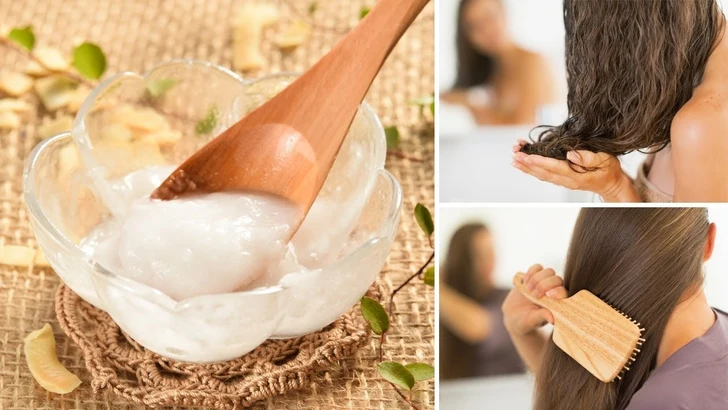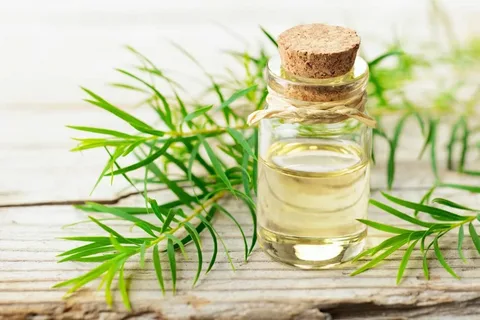When it comes to hair care, one of the most debated and sought after practices is oil your scalp. While some people swear by it for promoting healthy hair growth and preventing dryness, others question its effectiveness.
The truth is, scalp oiling can work wonders, but the key is frequency how often should you oil your scalp for maximum benefits without overdoing it?
In this article, we’ll share everything you need to know about scalp oiling, including how often to oil your scalp, the best oils to use, and the right techniques for beautiful, healthy hair.
Why Oiling Your Scalp is Important
Oiling the scalp isn’t just an ancient beauty ritual; it’s a powerful way to nourish your hair from the roots. The scalp is home to your hair follicles, which need regular care to stay healthy and promote growth.
Here’s why scalp oiling can benefit you:
Hydration and Moisture
The scalp is just like the skin on the rest of your body it needs moisture too. Dry scalps can lead to irritation, flakiness, and even dandruff. Oiling helps lock in moisture and keeps the scalp hydrated, which is crucial for healthy hair.
Improves Blood Circulation
Massaging oil into your scalp helps improve blood circulation, which promotes hair growth by ensuring that the hair follicles receive adequate nutrients and oxygen.
Prevents Hair Damage
Many oils, like coconut oil and argan oil, are rich in antioxidants and essential fatty acids. These oils nourish the scalp and help reduce the risk of breakage, split ends, and other forms of hair damage.
Reduces Dandruff
Regular oiling can help combat dandruff by moisturizing the scalp and preventing excessive dryness, which is a common cause of flakes.
How Often Should You Oil Your Scalp?
There’s no one size fits all answer, as the frequency of oiling largely depends on your hair type, scalp condition, and the type of oil you use. However, here are some general guidelines to help you determine how often to oil your scalp:
1. Dry Scalp or Hair
If you have a dry scalp or your hair feels parched, you’ll want to oil your scalp at least once a week. The extra moisture will help replenish what your scalp is lacking. Opt for rich oils like coconut oil, olive oil, or argan oil, which are known for their deep moisturizing properties.
2. Oily Scalp
On the other hand, if you have an oily scalp, oiling too often can make things worse by adding excess oil. In this case, once every two weeks should suffice. Focus on lightweight oils such as tea tree oil or grapeseed oil, which help balance oil production without weighing down your scalp.
3. Normal Scalp
For a balanced, healthy scalp, once a week is typically enough. This will keep your hair nourished and free from dryness without making it greasy. Choose a multipurpose oil like almond oil or jojoba oil, which provide the perfect balance of nourishment.
4. Oily or Fine Hair
For those with fine hair or oily scalps, it’s important not to over oil, as this can weigh your hair down. Instead of traditional oiling, try using a scalp serum or lightweight oil that’s designed to hydrate without clogging the hair follicles. In this case, once every two weeks should be enough.
Best Oils for Your Scalp
The right oil can make a huge difference in the health of your scalp and hair. Here are some of the most effective oils to include in your hair care routine:
Coconut Oil
One of the most popular oils for hair care, coconut oil is packed with medium chain fatty acids that penetrate deep into the hair shaft. It’s a great choice for moisturizing dry hair and soothing irritated scalps. It also has antibacterial properties that help fight dandruff.
How to Use: Apply it to your scalp and massage gently. Leave it in for at least 30 minutes before washing it out. For extra hydration, leave it overnight.
Olive Oil
Rich in antioxidants and vitamins, olive oil is another fantastic option for nourishing the scalp and preventing hair breakage. It’s especially beneficial for those with dry hair and split ends.
How to Use: Warm the olive oil slightly and apply it to your scalp, massaging gently. Leave it on for an hour, then wash it out.
Argan Oil
Argan oil is often called liquid gold for its high content of vitamin E, essential fatty acids, and antioxidants. It’s great for repairing damaged hair and keeping the scalp hydrated.
How to Use: Massage into the scalp and leave it in for at least 30 minutes before washing your hair. It’s a lighter option, so it works well for people with fine hair.
Jojoba Oil
Jojoba oil closely resembles the natural oils produced by our scalp, making it an ideal choice for balancing oil production. It helps to moisturize without clogging pores, making it a great choice for oily scalps.
How to Use: Apply it directly to the scalp and massage for about 5-10 minutes. Leave it for an hour or more and then rinse off.
Tea Tree Oil
Tea tree oil has strong antifungal and antibacterial properties, making it a fantastic option for those who struggle with dandruff, itching, or an oily scalp.
How to Use: Mix a few drops with a carrier oil (such as coconut or olive oil), then apply it to your scalp. Leave it on for about 20-30 minutes before washing it out.
How to Properly Oil Your Scalp
Oiling your scalp isn’t just about slathering oil on your hair and hoping for the best. To get the maximum benefits, follow these simple steps:
Step 1: Choose the Right Oil
Select an oil based on your hair and scalp type. If you have dry hair, go for heavier oils like coconut oil or olive oil. For oily scalps, try lightweight oils like jojoba oil or grapeseed oil.
Step 2: Massage Gently
Use your fingertips (not your nails) to massage the oil into your scalp. Gentle massaging stimulates blood circulation, which can promote hair growth. Spend about 5-10 minutes massaging your scalp in circular motions.
Step 3: Let the Oil Sit
After applying the oil, leave it on your scalp for at least 30 minutes. For deeper conditioning, leave it overnight (just be sure to protect your pillow with a towel or hair cap).
Step 4: Wash Thoroughly
Shampoo your hair thoroughly to remove the oil. You may need to shampoo twice, especially if you’ve used a heavier oil. Use a mild shampoo to avoid stripping your scalp of its natural oils.
FAQs about Oiling Your Scalp
1. How often should I oil my scalp for hair growth?
For most people, oiling your scalp once a week is ideal for promoting healthy hair growth. If you have dry hair or scalp, you can increase it to twice a week, but avoid excessive oiling if you have an oily scalp, as it could clog pores and lead to more oil production.
2. Can I leave oil in my scalp overnight?
Yes, leaving oil on your scalp overnight can provide deeper nourishment, especially if you’re using hydrating oils like coconut oil or olive oil. Just make sure to protect your pillow with a towel or hair cap to avoid staining.
3. What are the best oils for an oily scalp?
If you have an oily scalp, consider lightweight oils like jojoba oil, grapeseed oil, or tea tree oil. These oils can balance oil production without making your scalp greasy or weighed down.
4. Can oiling my scalp help with dandruff?
Yes, oiling your scalp can help reduce dandruff by moisturizing the scalp and preventing dryness. Oils like tea tree oil and coconut oil have antifungal and antibacterial properties that can help combat dandruff causing bacteria and fungi.
5. How do I remove oil from my scalp?
To remove oil from your scalp, shampoo thoroughly. You might need to shampoo twice, especially if you used a heavy oil like coconut oil. Be sure to use a mild, sulfate free shampoo to avoid stripping the scalp of its natural oils.
Conclusion: Finding the Right Balance
When it comes to oiling your scalp, the key is finding a routine that works best for you. Oiling can deeply nourish the scalp, promote healthy hair growth, and prevent dandruff but overdoing it can lead to greasy hair and clogged pores.
For most people, oiling once a week is ideal, but if you have a dry scalp, you may benefit from more frequent treatments.
Experiment with different oils and techniques to find the perfect match for your hair type. Whether you’re using coconut oil, argan oil, or tea tree oil, the benefits of scalp oiling are undeniable when done correctly.
So, the next time you’re wondering how often to oil your scalp, remember that the best results come from balance, consistency, and the right oil. Happy oiling!



